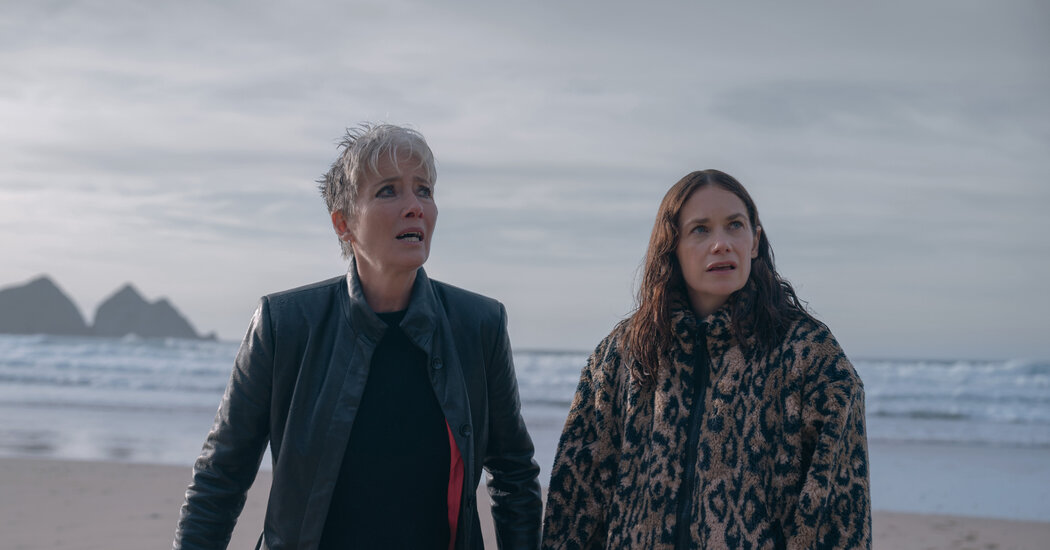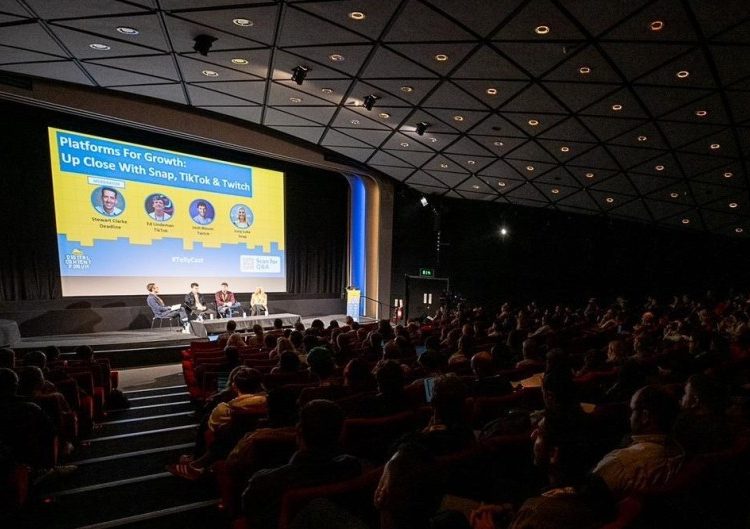When the spy novelist Mick Herron set out to write his first book, the conspiracy thriller “Down Cemetery Road,” in 2003, he wanted to avoid a pitfall common among first-time authors: making his hero so clearly resemble himself that readers assume the writing to be autobiographical.
So he wrote about a woman.
Sarah Tucker, the protagonist of “Down Cemetery Road,” is a plucky, good-humored art restorer at the University of Oxford with a suburban house and a somewhat ineffectual bond-tradesman husband. As the story opens, a home in her neighborhood blows up in an apparent gas-main explosion. As Sarah begins to form suspicions about the blast’s origins, she becomes the classic Hitchcockian wrong man (so to speak), finding herself embroiled in a mystery that involves assassins and shadowy government agencies.
Herron’s gambit worked: No one assumed that “Down Cemetery Road” was personal. The funny thing is that it was.
“There’s an awful lot of me in Sarah,” Herron said in a telephone interview before the release on Wednesday of “Down Cemetery Road” as a glossy Apple TV series. “There’s probably the exact amount of autobiography, in terms of attitudes and feelings, as there would be in an any early novel, except that because I bestowed it upon a female character, nobody ever made that connection.”
Sarah is played by Ruth Wilson, the British actress best known for her work in the BBC drama “Luther” and the Showtime series “The Affair.” Wilson gives the character a sardonic disposition and a playful spirit, meeting the moment with humor and brio, and throwing herself into the action without any fear of getting banged up.
For Wilson, the unique approach to the character was a natural response to one of Sarah’s most striking qualities: She has no obvious precedent onscreen. “I had never really seen a character like this in a show before,” Wilson said in an interview. “When I read the first episode, I thought, ‘She doesn’t really belong in this show. She doesn’t really belong in this genre, actually.’”
With no obvious comparisons to draw on, and with no similar parts to study, she settled on a different strategy. “I felt like, ‘OK, I’ve just got to make her as weird as possible,” Wilson said.
Sarah is not the only compelling female character at the heart of “Down Cemetery Road.” As her involvement in the gas-explosion conspiracy intensifies, she finds an important ally in Zoë Boehm, a sharp-tongued private investigator with a personal angle on the case. Played with scene-stealing charisma by Emma Thompson, who was also an executive producer of the series, Zoë is an irresistible screen detective in the mold of characters by Agatha Christie or Raymond Chandler.
But even she sticks out: We’ve never seen a TV character quite like this.
“The roles Ruth and I played are unique for this genre, as far as I know,” Thompson said in an interview. “I suppose that’s the thing I love the most about it — the originality of it all.”
Thompson said she was a longtime admirer of Herron, having first discovered his work at her local bookshop. It had been placed among the staff recommendations, she said, and she spent most of that morning “standing next to the shelf I’d picked it out from, reading, sniggering and wondering why I hadn’t found him before.”
Like many readers, she became a quick fan of Herron’s singular take on the spy thriller. “His books combine cynicism, compassion and wit in an unprecedented way for this genre,” she said. “He makes me laugh out loud, which is very unusual. His take on the world is full of uncomfortable clarity and a kind of bemused, bitter wisdom that doesn’t make you feel inferior.”
“Down Cemetery Road” is the first of four novels based around Zoë Boehm. Herron said that although the book was optioned years ago, with vague plans for a film adaptation on two occasions, the plans never went very far.
But it’s a different story now that an adaptation of another set of his best-selling books — the sleek, darkly comic espionage series “Slow Horses,” now in its fifth season — has become one of the most popular original dramas on Apple TV. When you write such a juicy part for Gary Oldman, you begin to acquire a reputation that carries over.
“If the earlier option had been taken up, I don’t think we’d have actors of the caliber of Emma Thompson or Ruth Wilson in it, but we would have some unknowns playing them,” Herron said. “I still find it difficult to believe that I’ve been this lucky,” he added with a laugh, describing seeing Oldman and Thompson perform his work.
Thanks to “Slow Horses,” Herron’s books are very much on trend. But as to whether there’s something about his work that is especially suited to the screen, Herron attributes the show’s success mainly to his collaborators — particularly the screenwriter Morwenna Banks, who adapted both “Slow Horses” and “Down Cemetery Road” for TV.
“I think both series could have easily crashed and burned if less skilled writers had taken them on,” Herron said. “I don’t think what I do is automatically looked at as being ideal for television. But when you’ve got writers like Morwenna Banks doing the adaptation, then what they bring to it makes it work onscreen.”
Thompson, too, had praise for Banks, whose version of “Down Cemetery Road” made Zoë more central to the action early on. “It passes the Bechdel test on so many levels it makes your head spin,” Thompson said, referring to the metric of whether a show or film features two female characters who have a conversation about something other than a man.
“There are a lot of male-dominated shows,” Thompson added. “I would go so far as to suggest we have enough of them right now, and it’s high time we had a fully realized perspective from the other 50 percent of the population.”
Wilson echoed that sentiment. “We weren’t sitting around going, ‘We have to make this female,’” she said. “But it is very rare to see women not only in this genre, but being funny and eccentric, and being action heroes and being slightly mad.”
“It’s a joy to be not sitting in deep emotions or talking about men to each other, or whatever it is women usually do when they’re onscreen together,” Wilson added. “We’re in action mode. We’re getting shot at. We’re getting blown up. And we’re having some jokes on the side.”
The post In This Mick Herron TV Adaptation, Women Take the Lead appeared first on New York Times.




